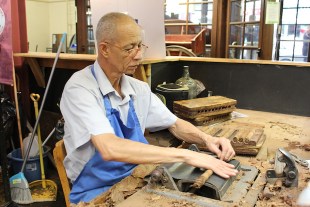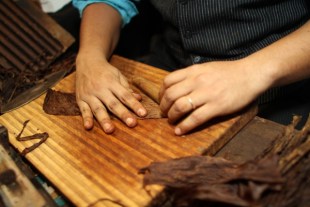One of the finest cigars I’ve had in years came not from Cuba, nor from the Dominican Republic, nor from the Democratic People’s Republic of Korea (though… that’s not really a surprise), but rather from The Bronx. Specifically, it came from the La Casa Grande Tobacco Company at the famed (though rather insipidly named) Arthur Avenue Retail Market.
Related: How To Prepare a Humidor

So. Arthur Avenue. There’s a lot of mozzarella there. And pizza, yes. And great coffee, gelato, fresh bread, Catholic churches, and more than a few excitable older men shouting back and forth across small tables laden with loaded ashtrays and crumbs of biscotti. And if you step into the Arthur Avenue Retail Market, it’s a great spot to get a cigar, too.

Related: How to Properly Smoke a Cigar
Now, was part of the enjoyment a result of the power of suggestion established by my watching the cigar roller at work? Maybe. But who cares? All I know is that some damn fine La Casa Grande cigars are being made right here in The Bronx, New York, NY, United States of America, baby.
And in case you were wondering, here’s the simplest break down of cigar color/strength and size:
- Claro = lighter brown or tan wrapper (and usually indicates milder profile)
- Colorado = medium brown or reddish wrapper (and stronger flavor)
- Maduro = deep brown wrapper (and by now you’re getting it)
- Oscuro = black wrapper (yep, big and bold flavor)
When it comes to size, the basics are:
- Panatela = narrower diamater cigar
- Corona = medium gauge (most common)
- Robusto, Presidente, Churchill, and a bunch of other wacky names connote a thick cigar.
Note that those names relate to thickness, not length. Length can be described as petite, grand, or with some other terms from the lexicon, or simply as short, medium, or long.



